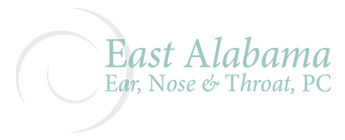Chronic Ear Infection
Chronic ear infection is an ear infection that does not heal. A recurring ear infection can act like a chronic ear infection. This is also known as recurring acute otitis media. The space behind the eardrum (the middle ear) is affected by this infection.
The eustachian tube, a tube that drains fluid from the middle ear, can become plugged and lead to an infection. This buildup of fluid in the middle ear presses on the eardrum, causing pain. If an infection progresses quickly or is left untreated it can cause the eardrum to rupture. Eustachian tubes in children are smaller and more horizontal, so they can become plugged more easily. This is one reason ear infections occur oftener in children.
What are the symptoms of chronic ear infection?
A chronic ear infection can cause milder symptoms than an acute ear infection. Symptoms may affect one or both ears and may be constant or come and go. Symptoms of a chronic ear infection include:
- feeling of pressure in the ear
- mild ear pain
- fluid draining from ears
- low fever
- hearing loss
- trouble sleeping
An infant with an ear infection may seem fussier than usual, especially when lying down, as this puts pressure on the ear. Your baby's eating and sleeping habits may also change. Pulling and tugging on the ear can also be a sign of a chronic ear infection in infants. However, this can also be caused by teething or exploration of the body.
Treatment options
Chronic ear infections require medical treatment. However, home treatments can help relieve your symptoms. Home treatments include:
- holding a warm or cool washcloth to the painful area
- using numbing ear drops
- taking an over-the-counter pain reliever, such as acetaminophen or nonsteroidal anti-inflammatory drugs (NSAIDs) like ibuprofen
Medication
If you have a chronic ear infection, your doctor will prescribe antibiotics. These may be taken orally or (rarely) given intravenously if the infection is severe. Your doctor may suggest ear drops if you have a hole (perforation) in the eardrum. But you shouldn't use some types of ear drops if your ear drum has a perforation. Your doctor may also recommend antibiotic ear drops or suggest using a diluted vinegar solution.
Surgery
Your doctor may recommend surgery for chronic ear infections that aren't responding to treatment or are causing hearing problems. Hearing problems can be especially problematic in children. Hearing problems can cause speech and language problems at an important time in development.
Your doctor may surgically insert a small tube through the eardrum to connect the middle ear and the outer ear. Inserting ear tubes helps the fluid in the middle ear drain, which can reduce the number of infections and the severity of symptoms. Ear tubes are usually placed in both ears. This procedure is called a bilateral tympanostomy.
To do this procedure, a surgeon will make a tiny hole in the eardrum (myringotomy). The fluid will be suctioned out of the ear, and a small tube will be inserted through the hole. Tubes usually fall out on their own, about six to 18 months after they are inserted. You may need to have the tubes surgically removed if they don't fall out.
Other types of surgery may be required if the infection has spread. There are small bones in the middle ear that may become infected. If this happens, surgery may be required to repair or replace them. A chronic ear infection can also damage the eardrum. If the eardrum isn't healing properly, you may need surgery to repair damage.
Rarely, the infection can spread to the mastoid bone, which is located behind the ear. Surgery is required to clean out the infection if it spreads to the mastoid bone. This is known as a mastoidectomy.
